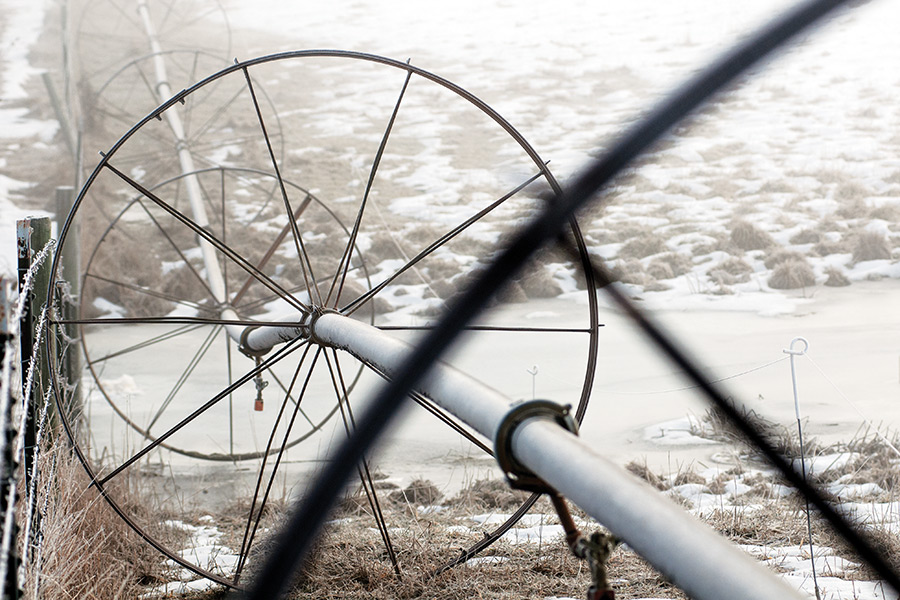The state Senate’s final vote on the tribal water compact Feb. 26 sent the contentious bill to the House just as the clock wound down to the Legislature’s transmittal deadline, and while compact proponents hail Senate passage as a success, the measure faces another pitched battle in the House.
Sen. Chas Vincent, R-Libby, sponsored the water compact, which is the culmination of decades of negotiations between the Confederated Salish and Kootenai Tribes and the state and federal governments. It recognizes the tribes’ immemorial right to the water on the Flathead Reservation while also securing water for non-tribal residents and irrigators.
The measure passed after two hours of sometimes-heated debate, with senators voting 31-19 in favor of Senate Bill 262. Eleven Republicans voted alongside 20 Democrats to support the measure.
Vincent, who chaired the Water Policy Interim Committee and has worked on the legislation for more than two years, said while people may disagree with the tribes’ rights to water off the reservation, past court rulings have upheld these rights for other tribes under similar treaties.
“I have read all the case law central to this negotiation. All of it,” Vincent said. “And I have come to the conclusion that, even if we don’t agree with some of the decisions that the courts have made, that is the law. The Supreme Court has already answered many of the questions that some folks fundamentally disagree with. But disagreeing with the courts isn’t going to provide wet water on somebody’s field. We crafted this legislation within the confines of what we had to work with, and the result is a strong, fair bill.”
Most of the opposition has come from some irrigators and other water-users on and around the Flathead Indian Reservation. They say that the agreement gives the tribes too much water and too much power over water administration on the 1.3 million-acre reservation.
“I think a lot of the opposition comes from the fact that (opponents’) issues have not been resolved satisfactorily,” said Sen. Jennifer Fielder, R-Thompson Falls, an opponent of the bill. “They are not convinced that this is the best deal, or the right deal or even a good deal. They’re not convinced that their water rights are protected.”
Supporters disagreed, saying the agreement protects existing water uses, while settling the tribes’ water rights, thus avoiding years of litigation in Water Court over those rights.
The Legislature has approved water compacts for Montana’s other reservations, and both Gov. Steve Bullock and state Attorney General Tim Fox have expressed support for the new agreement.
Sen. Bruce Tutvedt, R-Kalispell, a farmer and compact supporter, said the compact “does a good job of being a good neighbor” and is a fair resolution for both tribal members and non-tribal residents.
“All the water compacts start out with controversial issues. But then saner heads prevail and they move forward,” Tutvedt said. “The reason this is the last one to be resolved is it’s the biggest one and the most complex. None of the others have a reservation with the largest freshwater lake on it. And then there are nonnatives owning a lot of land, and whites and Indians living next to one another in this checkerboard situation. But this is a fair compact for both sides.”
To help usher the compact through the Senate, Vincent distributed an explanatory packet of information on the compact to all 150 Montana legislators in hopes it would clear up misunderstandings that have beset the compact in controversy.
The bill would establish a $30 million fund to help cover the costs for water pumping to meet agricultural irrigation demands. It also establishes a technical team whose oversight helps protect historic uses of the Flathead Indian Reservation’s water while making sure the tribe’s stream-flow targets on the Flathead River are met.
The compact was negotiated through the Reserved Water Rights Commission and includes recommendations from the Legislature’s Water Policy Interim Committee, which Vincent chaired, but needs approval from the state Legislature, Congress and the Northwest Montana tribes.
The Montana Legislature last session rejected a prior agreement. At least four pending lawsuits have been filed since then over claims to the water flowing on or through the reservation.
At the core of the dispute has been determining what amount of the reservation’s water goes to farmers, ranchers and others through the Flathead Indian Irrigation Project.
In his packet, Vincent explained the consequences the state faces if the measure fails, including a deluge of expensive litigation by the tribe over their water right in the state Water Court, which would cost the state millions of dollars to defend.
With the measure now bound for the House, Vincent said he’d continue to educate his fellow lawmakers in hopes of encouraging an educated discussion devoid of rhetoric.
My tact will be exactly the same,” he said. “I wasn’t asking for senators’ votes until the final debate. I was asking for their time, for them to sit down with an open mind, sort out the rhetoric and misinformation and make their own educated decision. And that’s exactly what I am going to do with the House. The two biggest worries that I have are that the decision will be made either in blind faith or blind opposition. But both positions are blind, and it doesn’t allow for an educated discussion about the substance of the policy.”
